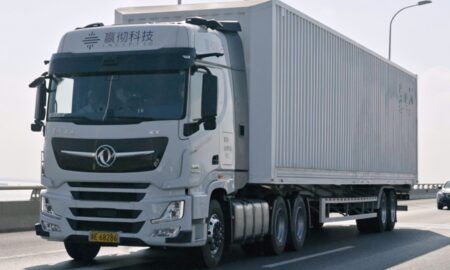Fiat Chrysler Automobiles (FCA) is to supply Waymo (formerly Google’s Self Driving Car Project) with an additional 500 Chrysler Pacifica Hybrid minivans for its autonomous-driving fleet, as the technology company announced an expansion of its Early Rider program.
Waymo has been running a small pilot program for the past few months, giving a small number residents in Phoenix, Arizona, access to its existing 100-strong fleet of self-driving Pacifica minivans. Over the course of the new trial, the company will be accepting hundreds of people with diverse backgrounds and transportation needs who want to ride in, and give feedback about, Waymo’s self-driving cars.
Rather than offering people one or two rides, the goal of the program is to give participants access to its fleet every day, at any time, to go anywhere within an area that is roughly twice the size of San Francisco. Waymo wants as many people as possible to experience its technology, as the early riders will play an important role in shaping the way it brings self-driving technology into the marketplace.
Over the last eight years, the company has been focused on the technology behind self-driving cars: clocking up over 3 million miles of on-road testing, ‘teaching’ its cars advanced driving skills, and improving the performance of the software. With its new program Waymo is turning its attention to the people who will benefit from the technology, using its self-driving cars in their daily lives. The company expects to learn things like where people want to go in a self-driving car, how they communicate with the vehicles, and what information and controls they want to see inside.
“The Chrysler Pacifica Hybrid minivan is a versatile vehicle for our early rider program, which will give people access to our self-driving fleet to use every day, at any time,” said John Krafcik, Waymo’s CEO. “This collaboration is helping both companies learn how to bring self-driving cars to market, and realize the safety and mobility benefits of this technology. It’s our first interaction with real people in our cars. This is a big, big step for us. Although under Arizona law self-driving cars can be tested without a human safety driver at the wheel, the Pacificas will, at least initially, have one of our employees at the wheel. But they’ll be there to help us gather more information about the way people use our rides. The car will be doing all the driving.”




